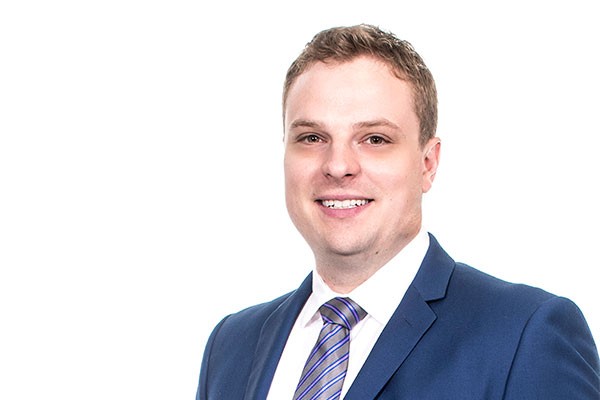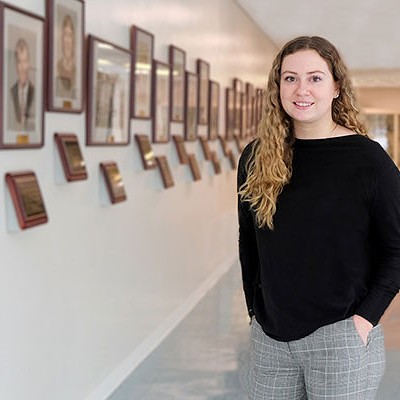Andrew Lipsit spent one year as a math teacher, but he knew before long that teaching wasn't right for him. After deciding to switch paths, he sought career counselling to narrow down his best path. Considering his math and business background, advice he got was to try out accounting. He was able to secure a three-month term at Grant Thornton, a leading global accounting and business advisory firm, and he took a liking to it. He also decided to try the introductory financial accounting course in 2013 through the CPA Atlantic School of Business, and it stuck.
With a goal of being a chartered professional accountant, Lipsit started pre-requisite courses online through the CPA Atlantic School of Business to meet the entry requirements for the CPA Professional Education Program (CPA PEP). The CPA PEP is comprised of six eight-week courses, each with an online and in-person component, culminating in the Common Final Examination (CFE) – a three-day exam that challenges candidates to apply the knowledge and competencies learned during the CPA PEP. Along with the completion of the CPA PEP, and the successful completion of the CPA CFE, all candidates must complete 30 months of relevant practical experience. This practical experience can be gained in any industry or sector. In fact, the slight majority of candidates work outside of accounting firms. It's also worth noting that the CPA PEP has three start dates a year, so there's additional flexibility around work and life commitments.
As part of his practical experience requirements, Andrew continued working at Grant Thornton, which, like many employers, financially supported the cost of his CPA studies. "The biggest challenge throughout the courses for me was my time management, which is a key factor in the CPA program," says Lipsit. "The majority of students are working full time, so you need to balance both school and work," he adds. Many of the exam questions are in business case format, which can prove to be time-constraining. Lipsit says the key to being successful in answering the questions is time management and prioritizing the issues.
With the bulk of CPA PEP content being online, learning and growth comes from a student's experience in the workplace and self-study. As part of their practical experience requirements, students must be paired up with a mentor who is a CPA, which speaks to the emphasis placed on experiential learning in the workplace.
Lipsit says that he's always been good with "the facts" – he's wanted to become an accountant after all – and his expertise came in handy. He finished the CPA program with the highest exam mark in Nova Scotia, resulting in him being named valedictorian at the recent convocation. Being a CPA has already opened many doors in his career. His original three-month position with Grant Thornton has now turned into a permanent one. "Having those letters attached to your name helps people recognize that you have been through the intensive program, and that you have been properly trained as a professional accountant both in the classroom, and in the workplace," says Lipsit.
He encourages everyone to make it past the initial overwhelming feeling. "The first course feels overwhelming because it's very different from university, and there is a lot of information to handle. However, if you keep with it, you will get the hang of the courses and case studies. In the end, it's all worth it."












